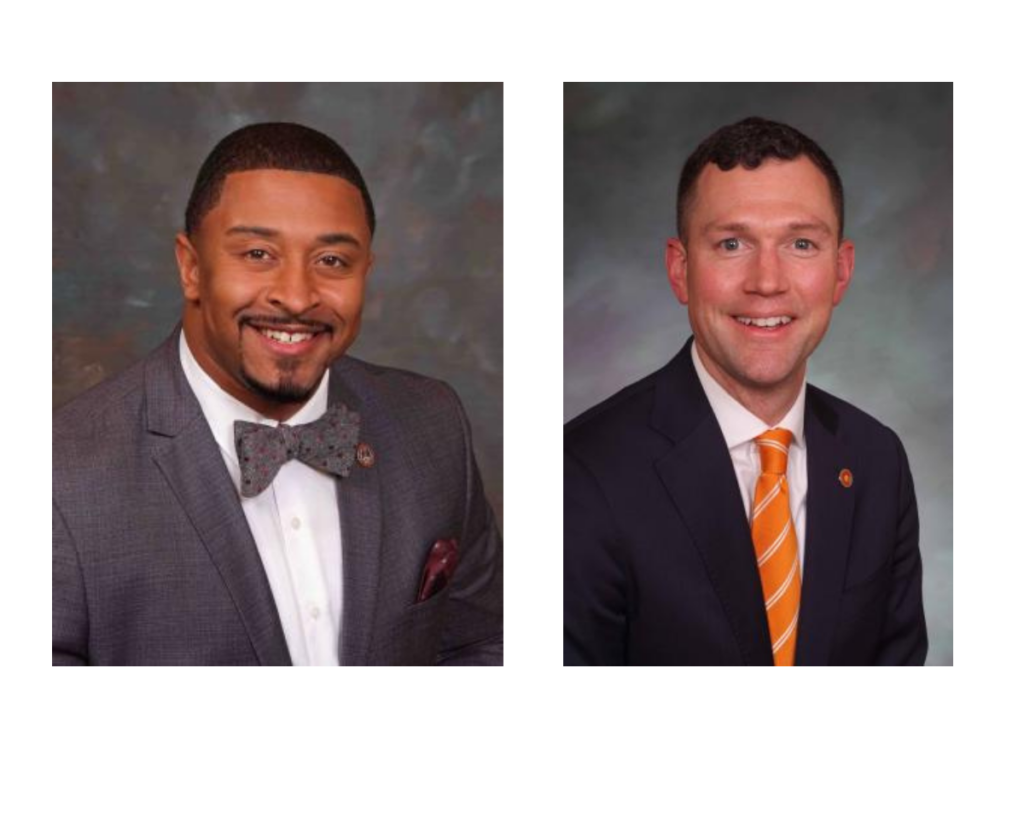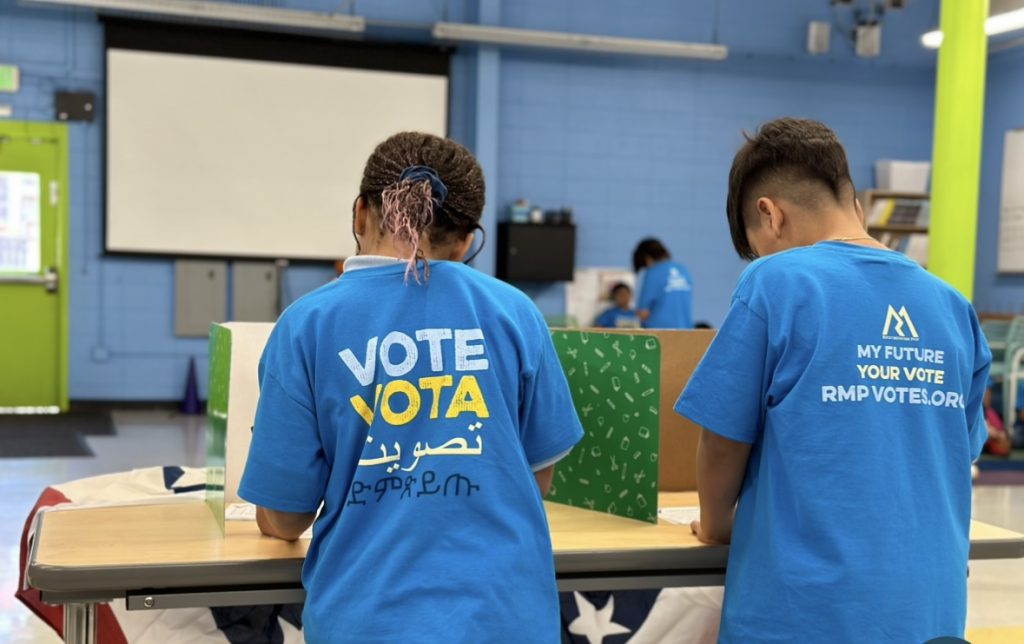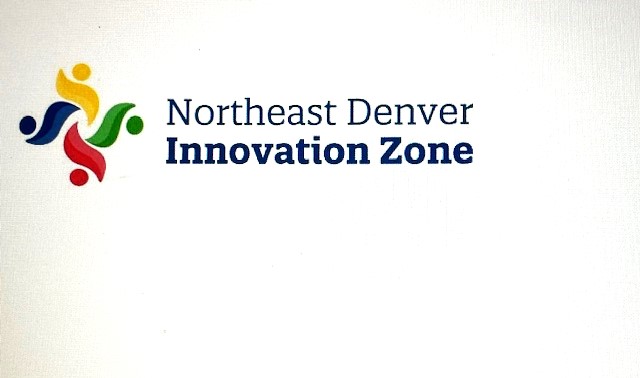Denver Public Schools is warning its building leaders not to advocate for state legislation that would protect innovation zones, or against recent policy changes curtailing innovation schools’ freedoms while on district time, or using district resources.
In a memo sent to all DPS building leaders Wednesday evening, DPS Chief of Talent Edwin Hudson advised that “our 90,000-plus families need to hear us speak with a consistent, professional and respectful voice on our district’s strategies, priorities, mission and vision.”
In their professional capacities, Hudson wrote, district employees must support the district’s position on educational issues.
The memo exacerbated ill feelings and tensions already inflamed by the DPS board’s March vote that limits the flexibility innovation schools have enjoyed since the passage of 2009 state law creating innovation schools. It also confused some school leaders.
It also elicited a stinging response from the co-sponsors of Senate Bill 22-197, State Senators Chris Hansen and James Coleman, both of Denver, in a letter to their Denver-based Senate colleagues. See the full text of their letter at the bottom of this article.
“While we have appreciated the feedback and ongoing engagement to improve the legislation from so many stakeholders, including CDE, CEA, and many others, we have been utterly shocked by the response from our school district,” Coleman and Hansen wrote. “Misinformation has been spread about what this bill does, our reputations and those of lifelong DPS educators impugned, and most disturbingly, fear and concern have only increased.”
Hansen and Coleman’s letter also points out that the threatening letter from the district does not come from DPS board members, but from the administration of Superintendent Alex Marrero. Its apparent intent, they said, is “(to silence) the voices of many of the educators we rely on when developing and implementing state policy.”
Alex Magaña, executive director of the Beacon Network Schools innovation zone, said he has been asked directly by school board members to reach out to them with concerns about the new innovation schools policy. Yet the memo directs principals not to do this.
“Please note that Board members are not involved in operational decisions,” Hudson wrote. “The DPS Board of Education has one employee, the superintendent, who is responsible for all operational decisions. If there are concerns regarding operational decisions, we ask that you send them up through your reporting chain (e.g. school leaders to Schools Team leaders) in a professional, respectful and inclusive manner…”
Magaña said the mixed messages are confusing and demoralizing. “I stand by my actions,” said Magaña, who has testified in favor of Senate Bill 22-197, which adds protections to innovation zones like his. Superintendent Alex Marrero and board member Scott Baldermann testified against the bill, and DPS has officially come out against it, saying it limits local control.
Magaña, a respected and veteran DPS principal and leader, has also rallied parents and staff to pressure school board members to reverse the curtailment of innovation school feedoms.
“I was doing what I was told I could do together with my families and community and I had full support from the state and the district level,” he said. “And now we’re being told that we can’t. We’re being silenced. And that’s unfortunate.”
If Marrero and his team intended to calm the storm that has erupted during the past month over the attempt to limit innovation school freedoms, this letter appears to have backfired. In fact, district employees are becoming more outspoken in their displeasure over a multitude of issues they say are being mishandled by the current administration.
Referring to a central office reorganization that has dragged on for months, a central office employee (who asked to have her name removed from this article) wrote on Facebook that:
“The process has shredded mental health of staff, destroyed organizational trust, and certainly forced attrition of some true talent. As you can imagine, it also obliterated an already feeble staff culture.”
She also said, referring to the letter from Hudson, that “The culture of the organization is absolutely abysmal, and the lack of vision and leadership is appalling, so this messaging to school leaders- who struggle with so much on their plates- doesn’t surprise me.”
In an article published Thursday in Chalkbeat, Hudson, defending his letter, saying “We’re not about squashing speech. This is about our community receiving one consistent message.”
Hansen and Coleman, however, said this position violates DPS’ own written policies, ”which states…under law… restrictions apply to candidates and ballot measures. They do not apply to legislation and employees may advocate in their professional capacities on behalf of legislation that is consistent with the District’s mission and values.”
Full text of Coleman-Hansen letter:
Colleagues,
We are writing today to share an official communication from Denver Public Schools that was sent last night to school leaders. It is important to note that this official communication does not represent the views of the DPS Board of Directors. The communication directly names Senate Bill 197 and silences the voices of many of the educators we rely on when developing and implementing state policy.
As many of you know, we are sponsoring Senate Bill 197. We brought forward this legislation after hearing from our community that school leaders, educators, and parents were experiencing deep levels of fear and concern for the future of their schools, which were intentionally designed by educators to meet the needs of their community.
Those conversations sparked a year-long effort to learn from innovation-related work over the last 14 years since the passage of the Innovation Schools Act. In alignment with recommendations from the Colorado Department of Education (see pg. 20), we developed a piece of legislation that we believe takes a reasonable step toward creating an equitable and fair process for resolving issues that arise. Senate Bill 197 touches two areas of the existing statute – the creation of innovation zone plans and the revisions and revocation of those plans.
We believed that by creating a fair, clear process to resolve disputes and by adding checks and balances that align with the existing law, we would take a necessary step forward to alleviating concern and fear felt by families and educators working to serve children (and doing a dang good job at it).
While we have appreciated the feedback and ongoing engagement to improve the legislation from so many stakeholders, including CDE, CEA, and many others, we have been utterly shocked by the response from our school district. Misinformation has been spread about what this bill does, our reputations’ and those of lifelong DPS educators impugned, and most disturbingly, fear and concern have only increased.
While we, of course, respect the laws and policies of any public institution, we find it critical to point out that through the email below, the district is violating its own policies, which states on page 14: Note: under law… restrictions apply to candidates and ballot measures. They do not apply to legislation and employees may advocate in their professional capacities on behalf of legislation that is consistent with the District’s mission and values (e.g. increased funding in the School Finance Act).
While the district’s email intends to silence school leaders, it also sends a clear signal to all district and school employees, including teachers, who each of us relies on to form and implement the policies we bring forward. Educators have been outspoken advocates for the work we all have fought for over the years. Time and again, our educators have shown up at the Capitol to speak on behalf of this legislation, and now that the district disagrees with their own educators, they are silencing their voices. This shift in culture that does not welcome educators sharing their expertise and diverse opinions have directly contributed to a decrease in impacted stakeholders speaking up and speaking out for what they believe is needed.
We believe there is a deep need for the state to ensure educators working hard to serve students receive the protections they are asking for. DPS’s letter serves as a clear example of why fear and concern are felt, and it is our sincere hope that each of you will stand with our educators and us and pass this legislation.
Respectfully,
James and Chris




